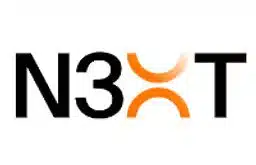Retailers haven't exactly clamored to implement the new back-office conversion electronic-check option (BOC), but adoption will pick up, according to the Federal Reserve's point man on electronic payments. “It's slower than what many of us thought,” Richard Oliver, executive vice president of the Federal Reserve Bank of Atlanta and the Federal Reserve's product manager for retail payments, tells Digital Transactions News. But Oliver predicts, based on his conversations with bankers and merchants, that many retailers, including some large ones, will roll out BOC. Oliver weighed in on BOC while commenting about results of the Fed's Check Sample Study that were released Tuesday. The study is the third component of the 2007 Federal Reserve Payments Study, a sweeping survey of the payments landscape (Digital Transactions News, Dec. 10, 2007). According to the Check Sample Study, the highest percentage of check payers, writers, in other words, were consumers, at 58%. The highest percentage of check payees?receivers?were businesses, at 72.1%. And the check purpose with the highest percentage was remittance payments?payments to business and government payees that do not occur at the point of sale?at 48.8%, according to a Fed release. The next largest purposes were income, 16.8%, and POS payments, 16.6%. With consumer-to-business checks amounting to just under half of all checks written, the potential for conversion from paper to electronic payments through the automated clearing house network remains strong, Oliver says. Before the ACH's governing body, NACHA, added BOC a year ago, retailers and billers already had several e-check options, including ARC (accounts-receivable conversion) for lock-box bill payments, WEB, and TEL, for Internet payments and telephone payments, respectively; and POP (point-of-purchase) for in-lane check conversion at stores. Then there is remote deposit capture, which also provides for in-store imaging of paper checks for deposit. While some observers believe retailers are having a difficult time making a business case for BOC (Digital Transactions News, March 24), Oliver believes they just need more time to sort out an increasingly complex payments environment, especially with banks and payment processors talking up POP, BOC, and remote deposit capture at the same time. “All three of these things are being sold to retailers,” he says. “I see people taking a deep breath and saying, 'let's get it right.'” The major part of the payment study found that 2.6 billion consumer checks were converted and cleared as ACH payments rather than check payments in 2006, an eight-fold increase over estimated levels for 2003. The Check Sample Study released Tuesday found that 42% of checks sampled were ineligible for ACH conversion under current NACHA rules. Ineligible checks include those with no signature, checks greater than $25,000, and checks from businesses and the U.S. government. Such checks can be imaged for non-ACH clearing under the framework created by the Check Clearing Act for the 21st Century, or Check 21. Oliver says that because of longstanding industry operational practices and technology, the reduction of paper in business-to-business check payments has been slow. But he adds: “Banks are working on this very feverishly.” Despite the uneven but unmistakable shift of check payments to electronics, Oliver predicts the financial industry will continue shrinking its infrastructure for processing paper checks. The Fed itself plans to reduce to four the number of its paper-processing facilities by 2011. “It's very clear the pace of change is accelerating,” he says. The Fed obtained the raw data analyzed in the Check Sample Study from nine financial institutions through Viewpointe Archive Services LLC, by far the largest archive of check data. While not nationally representative, the nine Viewpointe contributors represent 25% of all checks paid in 2006.
Check Also
Block Slashes Its Workforce as It Goes All in on AI
Block is cutting its headcount by more than 40%, the company announced late Thursday during …







